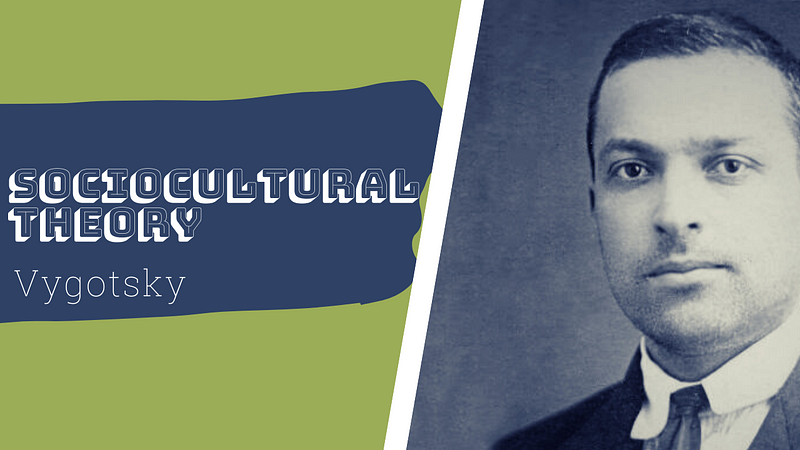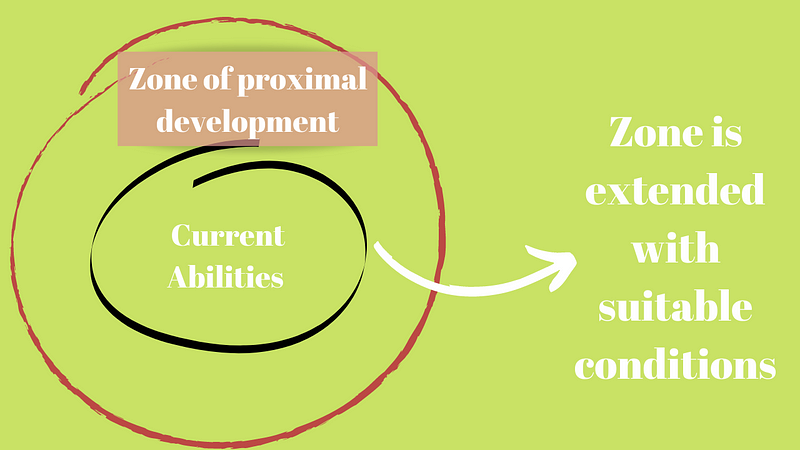Understanding Vygotsky's Socio-Cultural Theory of Development
Written on
Chapter 1: The Foundations of Vygotsky's Theory
Vygotsky’s socio-cultural theory posits that the development of a child’s cognitive abilities occurs through social interactions and cultural experiences. He famously stated, “Every function in the cultural development of the child appears on the stage twice, in two planes, first, the social, then the psychological.” This emphasizes that human cognition is rooted in social processes, a concept known as sociogenesis, which suggests that our mental capabilities arise from our interactions with others.
When discussing Vygotsky, it is essential to address two significant concepts: socio-cultural theory and the zone of proximal development (ZPD).
Section 1.1: Socio-Cultural Theory Explained
Vygotsky’s socio-cultural theory describes learning as an inherently social activity, deeply embedded within the cultural context. He believed that cognition cannot be fully understood without recognizing the importance of social interactions. Children enter a world rich in cultural and social influences, and these factors play a crucial role in shaping their cognitive development.

Section 1.2: The Zone of Proximal Development
Another key aspect of Vygotsky's work is the concept of the zone of proximal development (ZPD). Visualize a circle representing your current abilities. While you may possess the potential for growth, you often require guidance and social interaction to reach it. According to Vygotsky, effective learning occurs within this zone, where a more knowledgeable individual—be it a teacher, a peer, or a parent—offers scaffolding to help bridge the gap in understanding.

Chapter 2: Scaffolding in Learning
Scaffolding refers to the support provided by adults or more capable peers when learning new skills. It involves offering tailored assistance that adapts to the learner's needs. For example, if a child is working on a complex puzzle, appropriate scaffolding would allow that child to progress beyond their current ability level, whereas simply solving the problem for them would not be considered scaffolding.
Video Description: Vygotsky's Theory of Cognitive Development in Social Relationships explores how social interactions shape cognitive growth in children.
Video Description: Lev Vygotsky's Sociocultural Theory of Learning (5 Key Elements) outlines the core components of Vygotsky's learning theory and its implications.
Implications for Education
The concept of the zone of proximal development carries significant implications for educational practices. Effective teaching should focus on the learner's potential, creating opportunities for development. The ultimate goal is to foster independent thinking and gradually transfer control to the student. This can be achieved through active participation and meaningful engagement in the learning process.
Instructors must understand what learners already know and what they can achieve with support. Vygotsky’s contributions to developmental psychology have had a profound impact, extending beyond theoretical discussions to practical applications in educational settings.
Final Thoughts
This overview highlights the fundamentals of Vygotsky’s socio-cultural development, the zone of proximal development, and the scaffolding process. However, Vygotsky's theories encompass much more, offering a rich framework for understanding human learning and development.